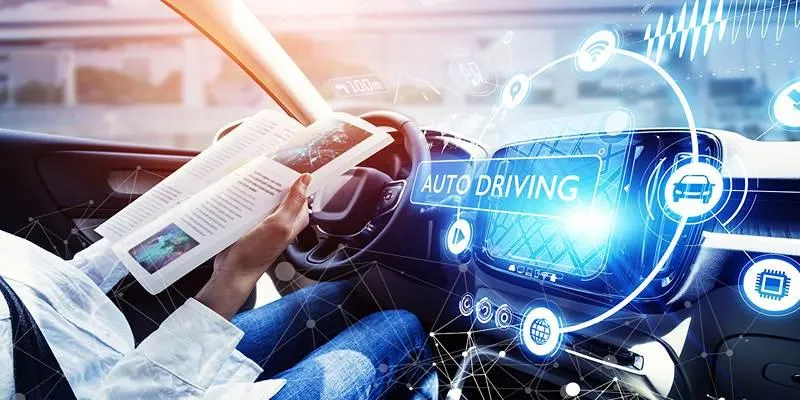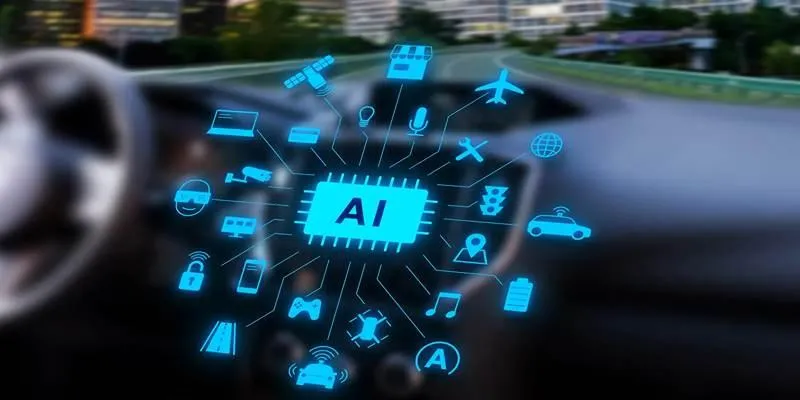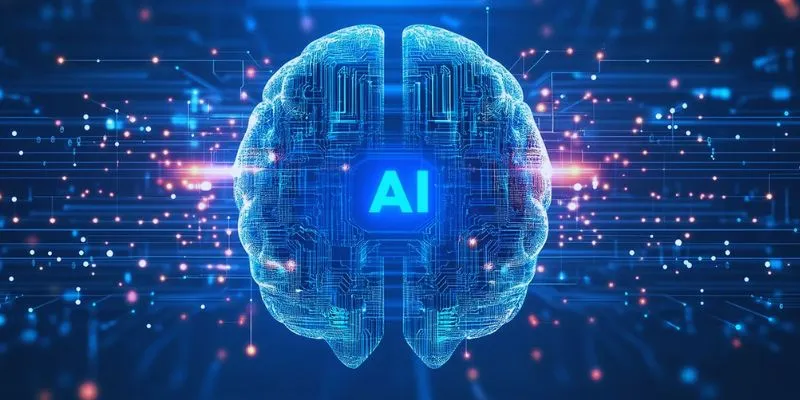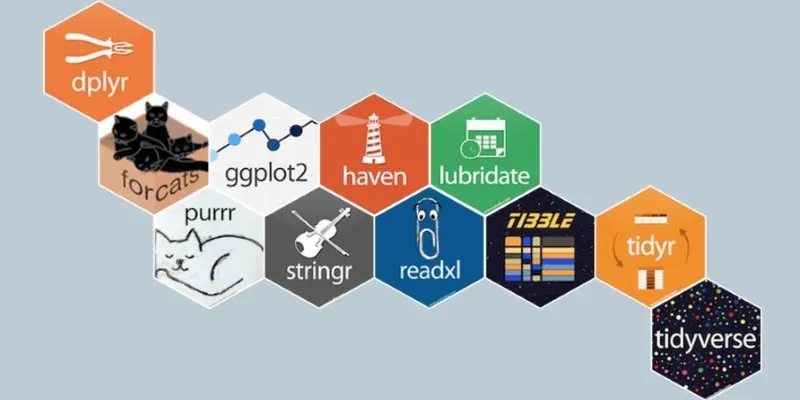The automotive industry is on the brink of a major transformation, driven by rapid advancements in Artificial Intelligence (AI). At the forefront of this revolution are autonomous vehicles, or self-driving cars, with AI playing a crucial role in making them a reality. These vehicles are designed to navigate and operate without human intervention, relying on sophisticated AI technologies to make decisions, process information, and ensure safety. In this post, we will explore how AI is shaping the future of autonomous vehicles and its impact on the automotive industry.
The Advent of Autonomous Vehicles
Autonomous vehicles (AVs) are capable of sensing their environment and operating without human intervention. They utilize various sensors, cameras, and AI algorithms to make real-time decisions that guide their movements. The potential of AVs to revolutionize transportation is enormous, with implications for safety, traffic efficiency, environmental impact, and urban planning.
The journey towards fully autonomous vehicles has been underway for several years, with companies like Tesla, Waymo, and Uber spearheading the development of self-driving technologies. While significant progress has been made, the widespread adoption of autonomous vehicles still faces challenges such as technology, regulation, and public acceptance. However, the role of AI in making these vehicles a reality is undeniable, as it is the backbone that supports their functionality and progression.
The Role of AI in Autonomous Vehicles

AI allows autonomous vehicles to perform tasks similar to human drivers, such as steering, braking, accelerating, and understanding their surroundings. AI systems in autonomous vehicles continually learn from data through machine learning, improving decision-making over time. Several AI systems are essential for making self-driving cars possible:
- Perception : AI uses cameras and sensors to understand the car’s surroundings. It can detect pedestrians, other vehicles, traffic signs, and objects, allowing the car to interact effectively with its environment.
- Decision Making : AI algorithms make quick decisions based on sensor data. This includes decisions about lane changes, stopping at intersections, or adjusting speed to avoid collisions.
- Path Planning : AI helps autonomous vehicles plan their routes in real time, considering factors like road conditions, traffic patterns, and construction zones. This ensures the vehicle always chooses the safest and most efficient route.
AI also enables advanced features such as adaptive cruise control, lane- keeping assist, and emergency braking, which are common in semi-autonomous vehicles today. The role of AI in autonomous vehicles continues to evolve, with the ultimate goal of achieving full autonomy, where human intervention is no longer necessary.
How AI Improves the Safety of Autonomous Vehicles
One of the most significant advantages of autonomous vehicles is the potential for improved safety. Studies indicate that human error accounts for approximately 94% of all traffic accidents. AI has the potential to drastically reduce these accidents by eliminating human mistakes, such as distracted driving, fatigue, and impaired driving. Autonomous vehicles equipped with AI offer several key safety benefits :
Faster Decision Making
AI can process data much faster than humans. In emergencies, AI systems in autonomous vehicles can make rapid decisions to avoid accidents. For instance, if an object suddenly appears in the vehicle’s path, the AI system can react almost instantly, applying the brakes or steering to avoid the obstacle.
Elimination of Driver Fatigue
Driver fatigue is a major cause of accidents, especially on long trips. Autonomous vehicles equipped with AI are not affected by fatigue, ensuring continuous, reliable performance. This makes them ideal for long-haul journeys, reducing the risk of accidents due to tiredness or distraction.
Predictive Capabilities
AI systems in autonomous vehicles can analyze data from previous trips and real-time traffic information to predict and avoid potential hazards. For example, AI can predict the likelihood of an accident occurring based on traffic flow, road conditions, and other variables, allowing the vehicle to take preventive measures, such as slowing down or changing lanes.
Benefits of AI in Autonomous Vehicles

The implementation of AI in autonomous vehicles offers numerous benefits, not only for safety but also for the automotive industry and society as a whole. Some of the most notable advantages include:
- Reduced Traffic Congestion : AI allows autonomous vehicles to communicate with one another, creating a more coordinated driving environment. This communication can lead to smoother traffic flow and reduced congestion, particularly in urban areas.
- Enhanced Fuel Efficiency : AI systems can optimize driving patterns to improve fuel efficiency. For instance, by maintaining a consistent speed and avoiding unnecessary braking, autonomous vehicles can reduce fuel consumption.
- Improved Accessibility : Autonomous vehicles have the potential to make transportation more accessible to individuals unable to drive due to age, disability, or other reasons. This opens up mobility options for a wider range of people.
- Cost Reduction : Over time, autonomous vehicles could lead to lower costs for businesses and consumers. Reduced fuel consumption, fewer accidents, and lower insurance premiums are just a few of the financial benefits that AI-powered self-driving cars can offer.
Conclusion
Artificial intelligence is revolutionizing the automotive sector by paving the way for the creation of autonomous vehicles. These vehicles have the potential to enhance road safety, reduce traffic congestion, decrease fuel consumption, and make transportation more accessible. Despite this, there are still obstacles to overcome, such as technological limitations, legal issues, and public trust. The future of autonomous vehicles is promising, and artificial intelligence will continue to play a significant role in shaping the future of transportation despite the challenges that lie ahead.
 zfn9
zfn9





















